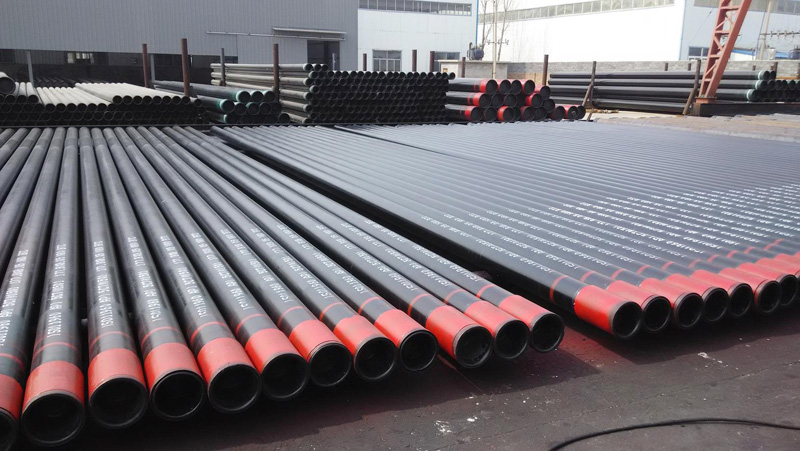 What’s New?
What’s New?
- Cause of well casing pipe damage and repairing technology
- How many steps are needed in the process of pipelines built?
- What are the commonly used welding methods for oil pipelines
- Do you know new anti-corrosion technologies for pipelines
- Development trend of global continuous pipe drilling technology
API standards for OCTG casing and tubing
What is API?

API, referring to "American Petroleum Institute", founded in 1919, is the world's largest oil and gas industry association in the United States and is the world's most successful chamber of commerce that contributes to the standardization of oil production. The standard specification has been widely used in the world, versatility and advancement.
The main function of API is to define and draft standards to qualify the oil and petrol industry, ensuring the safety and reliability of the industrial equipment. Therefore, the equipment with API specification is not only considered as highly qualified but leading positioned in the field as well.
Classification of API
API is divided into three groups: tubing in grades H40, J55, and N80; restricted-yield tubing grades L80, C90, and T95; high-strength tubing in seamless grade P110. The number in the grade designation represents the lowest yield strength of the steel in thousand psi. API defines the yield strength as the tensile stress required to produce a specific total elongation per unit length on a standard test specimen.

Due to the relatively low yield strength, grade H40 is generally not used in tubing sizes. J55, commonly used grade for most wells, has been the "standard" grade for tubing in most relatively shallow (< 9,000 ft) and low-pressure (< 4,000 psi) wells on land. N80, a relatively old grade with open chemical requirements, is susceptible to H2S and acceptable for sweet oil and gas wells in design conditions. L80 is a restricted yield-tubing grade that is available in Type 1, 9Cr, or 13Cr. L80Type 1 is less expensive, but more subjects to weight-loss corrosion, commonly used in oil and gas fields. Despite the popularity for CO2-and mild H2S-contaminated wells in the past, Type 9Cr has largely been supplanted by Type 13Cr. L80 13Cr tubing has become popular for its good CO2-induced weight-loss corrosion resistance properties. C90 is relatively new with two different chemical requirements: Type 1 and Type 2. Only Type 1 is recommended for use in sour service. T95 is a high-strength tubular grade with different chemical requirements: Type 1 and Type 2. Only Type 1 is recommended for sour service. P110, the high-strength tubing, is normally used in deep sweet oil and gas wells under high pressure. This grade is sensitive to SSC failures unless the temperatures are relatively high (> 175°F).
API specification
API Tubes are supposed to bear the pressure during the extraction period, which means it should be of great pressure resistance and proper malleability. Besides, it ought to be sized to perfectly satisfy the expected rates of oil and gas products, neither too big nor too small. API 5CT and 5B make specific requirements to the production of tubes, such as tensile strength, yield strength, elongation and hardness, etc.
| Product | Minimum Yield Strength | Maximum Yield Strength | Minimum Tensile Strength | Maximum Hardness |
|---|---|---|---|---|
| API L80 | 80,000 psi | 95,000 psi | 95,000 psi | 23.0 HRC |
| API C90 | 90,000 psi | 105,000 psi | 100,000 psi | 25.4 HRC mean |
| API T95 | 95,000 psi | 110,000 psi | 105,000 psi | 25.4 HRC mean |
| API C110 | 110,000 psi | 120,000 psi | 115,000 psi | 30.0 HRC mean |
TICO API Tube
The tubes manufactured in our company are completely certified by the API 5CT, with an outside diameter ranging from 1.660* to 4 1/2* (42.16mm to 114.3mm) and wall thickness from 2.3 PPF to 26.10 PPF (3.57mm to 9.52mm). Besides, they are made to withstand the pressure generated from the extraction process, owning suitable tensile and yield strength and pressure resistance.
With API certified, we promise to provide the top quality tubes, sincerely looking forward to offering you the best products, as well as the perfect service.
